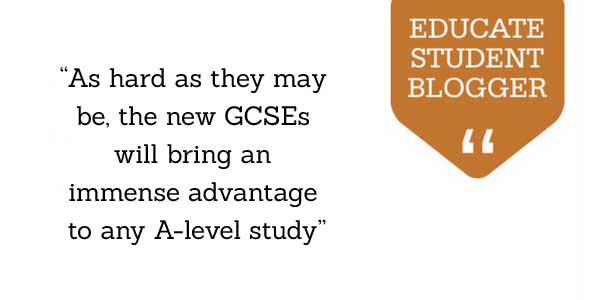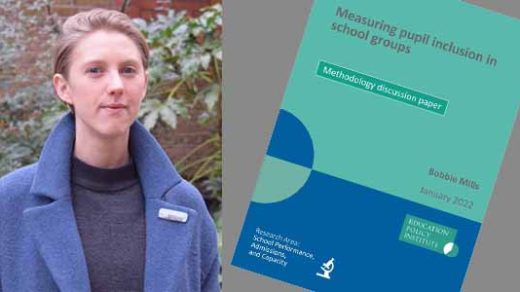The transition from GCSE to A Level

In the difficult transition from GCSE to A-level, year 12 Archbishop Blanch School student Lily Kehoe offers insight into how she found the change from Key Stage Four to Key Stage Five and the ways in which she believes the new GCSEs will help her and future A-level pupils.
If there was a phrase I could pick to summarise my transition from GCSE to A-level it’d most definitely be ‘you’ve won the battle but not yet the war’. I am perfectly aware that to all GCSE students I seem like just another mopey A-level student who takes only three subjects as opposed to the nine you take and trust me I’ve been there. I’ve rolled my eyes at seemingly patronising sixth formers and thought “you’re doing three subjects you enjoy while I’m doing MATHS (a subject most definitely not a favourite of mine)”.
One thing September 2018 A-level students can rest assured about is that you’ve done the new GCSE across the board, an advantage that would’ve made me feel, as the youth say, ‘too blessed to be stressed’. But in all seriousness and as someone who was part of the awkward guinea pig ‘only two new GCSEs’ era (put simply that I did only new maths and English) I can somewhat confidently say that, as hard as they may be, the new GCSEs will bring an immense advantage to any A-level study.
Having picked English Literature, History and Religious Studies, the only A-level subject of mine which I sat a new GCSE in was English. I have an undeniable passion for the subject but combined with the skills I picked up in that particular GCSE, I was very quickly surprised at my own ability to transfer what I had learnt from Key Stage Four to Key Stage Five. I believe my progress this year in the subject was helped by my GCSE experience and although I can’t say for sure, even my early A-level essay grades do demonstrate a certain understanding of how to format an answer more suited to Key Stage Five.
In contrast with my transition into English A-level comes that of History and Religious Studies. This year has made me feel as though sitting the new GCSEs in these subjects would’ve been a huge benefit. The start of the year involved a lot of fumbling around for essay technique and mind boggling over the sheer vastness of content. I found myself thinking, rather frequently, “This is nothing like GCSE” and there were times when I felt completely ill prepared for the A-level because of my experience being only in the old GCSE. The fact that I would sit a new A-level with the foundation of old GCSE knowledge in these two subjects infuriated me. Luckily teachers were prepared for the fall out of this year’s batch of guinea pig students and the confidence I have in English has slowly but surely begun to seep into these other two studies. However I can’t help but feel like this year has been an unnecessarily shocking learning intervention that may have been helped if we would’ve sat the new GCSEs in all subjects.
A-levels in any subject and in anyone’s school career will probably be among the more trying of experiences and let it not be misunderstood, though I do believe English GCSE helped me in my A-level Literature studies I will undoubtedly have the odd moment when I feel on the point of imploding. A-level studies are in depth and I have really enjoyed them so far. The subjects I have chosen live up to the rewarding gain of new knowledge every day. I surprise myself at my capability to learn content and though the new emphasis on evaluation seemed daunting at first it gives you the chance to form an opinion on what you have learnt, something Key Stage Four lacks in. Choosing to study A-levels and deciding which subjects is a big decision for teenagers across the country and exams only seem to be toughening up. I can speak from experience when I say that the new GCSE will be of great help to students starting their A-levels and that any work done towards them pre sixth form or college will give a foundation for the last two years of your school career and lessen the gap between Key Stage Four and Five. The new GCSEs, as difficult as they may seem, can only demonstrate your capabilities to adapt to a higher level of study.




